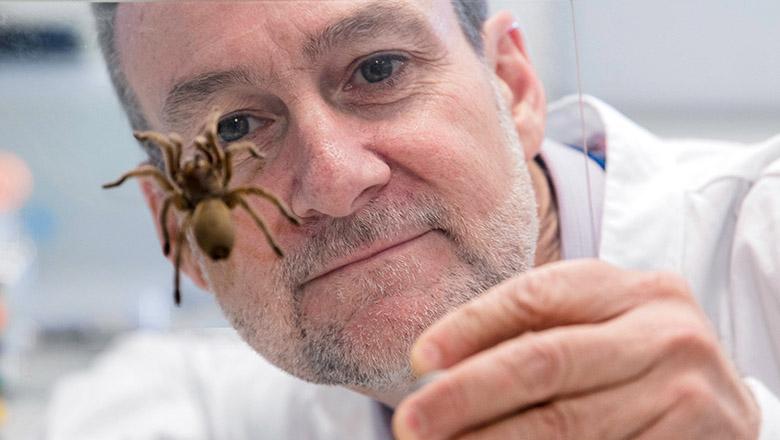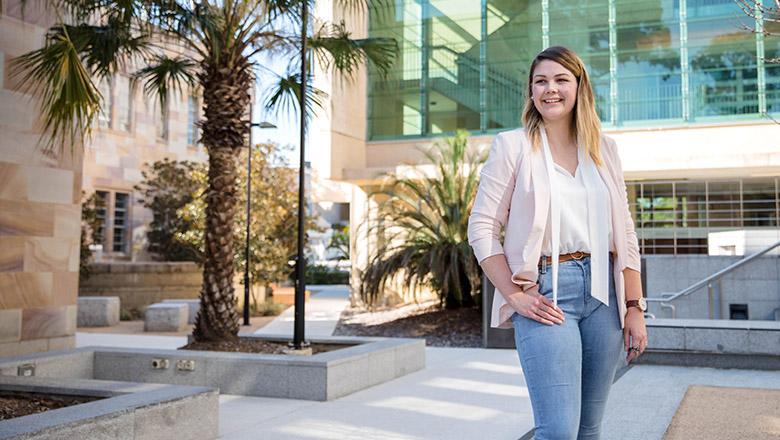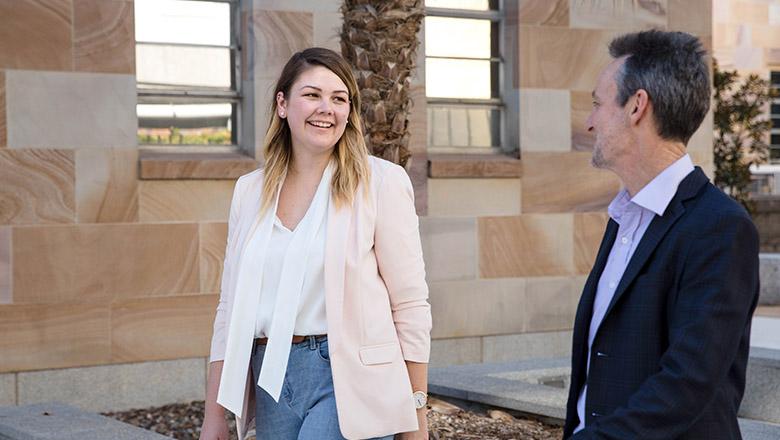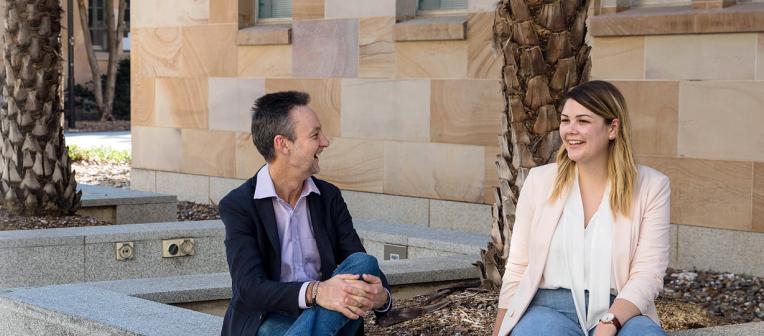Facing her fears head-on was a critical step for this PhD candidate in deciding her future research path.
The first time Samantha Nixon approached research supervisor Glenn King, she was literally shaking. It wasn’t through nervousness or intimidation, though. It was because Glenn was holding a spider – one of the creatures that Samantha now regularly studies up close and personal.
From petrifying to pet

“Now I actually cry when the spiders die, but back then I was completely arachnophobic,” laughs Samantha, who is based in the Institute for Molecular Bioscience (IMB) at UQ.
“Despite the fact that I was shaking wildly, I listened as Glenn discussed how venoms contain different components that could target the brain to treat conditions like epilepsy, stroke and chronic pain."
“I was fascinated by the chemical complexity of the venom, how they work and how we can use them to combat global challenges. So I volunteered in his lab to get over my fear of the spiders, and Glenn suggested working on the parasite project."
“I thought, great, now I’m not only working with big, hairy spiders, but also with blood-sucking worms and sheep manure, because that’s what we extracted the parasites from.”
Why Samantha is doing a PhD in venomology
While it may sound far from a glamorous pursuit, it's one that Samantha helps bring to prominence through her gift for science communication and community engagement. Her passion is evident as she details what inspires her so much about the capacity for world-changing advances in the field of venomology.
“Parasites are crippling the Australian sheep industry; Australia exports more than $5 billion worth of wool and meat each year, but loses over $450 million a year through parasitic worms,” Samantha says.
“These worms have become resistant to all available drug classes, so we need to find new treatment now to protect both our sheep and the farmers. This problem is only getting worse due to climate change, drought and a multitude of factors coming together to push the industry to the brink. Then, when we look at the human side, we’re lucky parasites are not a huge problem here in Australia, but it definitely effects our neighbours like Papua New Guinea, South East Asia and those slightly further afield in sub-Saharan Africa."

"I want to see Australia step up, help and become a leader in this space."
“Malaria still kills more than 450,000 people each year and then there are 1.2 billion people in the transmission zones for parasitic worms who require treatment. The worms might not kill as many people, but they cause permanent disability to millions.”
Choosing her PhD supervisor
In addition to attending Glenn's seminar, Samantha decided she wanted to pursue a PhD in his research team after realising his name was recurring in a number of publications she enjoyed.
Glenn says he saw in Samantha an intelligent and naturally curious young woman, but that wasn't the only trait that made her a valuable addition to his team.

“The most important thing is a passion for science, because it’s not an easy business,” he says.
“There can be long hours, moments where things don’t work and, if you’re not passionate, you’re not going to push through those moments.
“But there are also other personal attributes you look for. When you have a lab like ours with 25 people, you need to consider that a positive and harmonious workplace is vital. A bad personality can make for a horrible environment. So, I look for people who are empathetic and can be understanding when others are having their own bad times."
“Getting along with everybody and complementing other people’s skills are highly important factors. There are many people who don’t have a great GPA who turn out to be fantastic research scientists, and that’s because of their attitude."
“Not all researchers will tell their candidates this up-front, but it’s something to be mindful of when you’re mapping out your future.”
Your research career begins here at UQ. Explore our scholarships or submit an expression of interest now.





